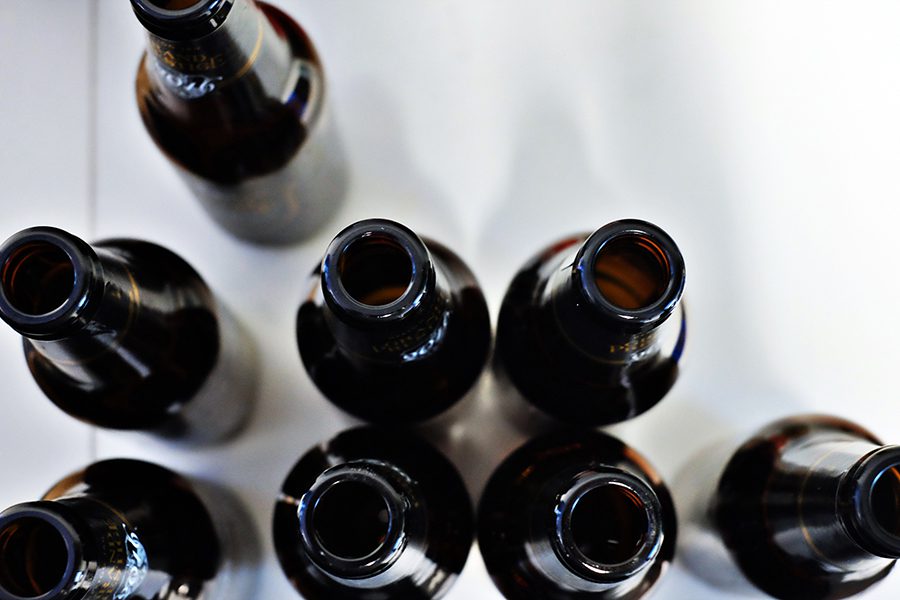When progress isn’t a good thing: Identifying the stages of alcoholism
- / Addiction

Although the opioid crisis is currently getting more press coverage, there’s another insidious disease that’s quietly wreaking havoc on personal goals and aspirations, families, career plans, financial health, and untold other instances of unrealized potential. It’s the same condition that claims around 88,000 lives each year (roughly twice as many as opiate overdoses).
Those are sobering statistics for individuals struggling with alcohol use disorders (AUDs, commonly known as alcoholism). But perhaps the more frightening numbers are those that show that alcohol use disorders are climbing. One study in particular noted a nearly 50 percent increase in the prevalence of AUDs between 2001–02 and 2012–2013. Today, more than 1 in 8 Americans meet the diagnostic requirements for alcohol use disorder.
And while the disease doesn’t typically announce its presence, which might make it easier to identify who needs help sooner, it perseveres, progressing from early-stage to late-stage alcoholism in a fairly predictable manner.
During the early stages, someone with a drinking problem might be able to fly completely below the radar. Drinking usually escalates, and the individual often notices an increased tolerance for alcohol. Although this is often the start of addiction, the alcoholic’s outward appearance and behavior may look pretty normal. Early-stage individuals with an AUD haven’t yet experienced a negative impact to their careers, education, or family life. One thing to monitor, however, is this person’s attitude toward alcohol. Do they seem to need it to have fun? Are they a little too focused on when the next drink is coming?
In the middle stage, the individual continues to increase the amount and frequency of consumption, and a physiological dependence develops, bringing with it strong cravings for alcohol. At this stage, the alcoholic needs to drink to avoid withdrawal symptoms such as restlessness, headache, insomnia, and nausea or vomiting. Despite attempts to keep the addiction a secret, their dependence on alcohol may be readily apparent to others. Those in the middle stages of AUDs might appear bloated or red in the face due to enlarged blood vessels. Work performance, personal lives, and relationships with family and friends – as well as sleep quality and personal hygiene — suffer. The alcoholic often experiences feelings of guilt and intense mood swings and may become depressed.
The late stage of alcoholism is characterized by a loss of control. Obsessed with drinking, the individual now requires alcohol to sleep, cope with stress, have fun. In the late stage of alcoholism, he or she can no longer quit cold turkey because doing so might cause severe and possibly life-threatening withdrawal symptoms. In addition to deteriorating social, mental, and financial health, the alcoholic may experience a range of physical symptoms and conditions: everything from malnutrition to anemia, hypertension, cardiovascular disease, stroke, lung infections, cirrhosis, pancreatitis, diabetes, and brain damage. In addition to the obvious physical effects, alcohol puts the user at a higher risk of dying from trauma, suicide, and accidents. It’s estimated that alcohol contributes to the deaths of 88,000 Americans each year, making it the third leading preventable cause of death. Indeed, individuals who don’t get help with their fight against alcoholism can find themselves facing a grim future.
Now, some good news
First, it’s critical that we dispel one misconception around alcohol use disorders: Addicts absolutely do not need to “hit bottom” before seeking help. Like many health conditions, the prognosis is better when help is sought in the early stages.
That said, whatever stage you or your friend or loved one are in, there is no better time than now to seek professional treatment. Even in the late stage of alcoholism, some health issues can be reversed with professional help – and an alcohol-free life is within reach. For the best chance at recovery success, however, alcoholics should be advised not to struggle alone. Late-stage AUDs can result in some difficult withdrawal symptoms, so medically monitored detox is often recommended. Once sober, the individual can work with a behavioral health counselor to determine what underlying feelings or challenges may be triggering the reliance on alcohol, and work toward a whole-body approach to ensure ongoing physical, mental, and emotional health.
For more information or to discuss the best treatment option for your individual case, please email or call or email Jordan Hamilton at 720-577-4422 or at info@choicehousecolorado.com.
Stages, signs, and treatment for alcohol use disorders (AUDs)
| Stage | Potential signs and symptoms | Recommended treatment plan |
| Early |
|
|
| Middle |
|
|
| End |
|
|
- An estimated 88,0008 people (approximately 62,000 men and 26,000 women8) die from alcohol-related causes annually, making alcohol the third leading preventable cause of death in the United States. The first is tobacco, and the second is poor diet and physical inactivity. 9
